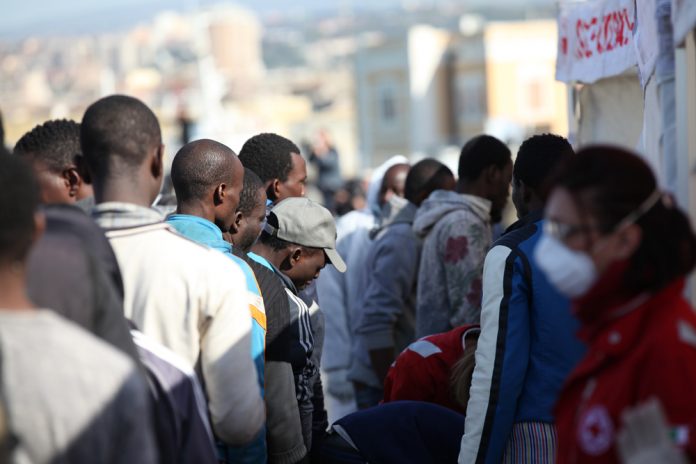The electoral success of parties promoting xenophobia and racism in the Italian election reflects European Union trends. Our response should live up to our collective responsibility to uphold our vision of a strong, diverse and inclusive Europe.
Whatever the outcome of the ruling coalition, the far-right League and the anti-Europe 5-star movement have shaken traditional parties and normalised xenophobia.
The League’s Islamophobic and xenophobic campaign to “stop the invasion” couldn’t have been clearer on its intention to target migrants and Muslims. The League’s leader referred to the racist mass shooting that injured six African migrants in Macerata as “social conflict” resulting of the “invasion”.
In a context where more than 60% of hate crime target victims because of their race or ethnicity according to official police data, the climate of impunity in Italy is sticking. There are no data on prosecution or sentencing rates for racist crime. Racist crime is likely to rise in the coming months, after a result that may embolden some to take action, similarly to the UK post-Brexit referendum surge in racist attacks. In fact, a Black man was killed in Florence in what appears to be a racist murder, which the police brushed off as the act of a “suicidal and confused” person.
Italy, a frontline country for migrants coming through the Mediterranean, pays the price of the lack of solidarity shown by European Union countries and the externalisation of migration policies to third countries. Its weak democratic tradition, its lack of respect for institutions and its collective amnesia on its fascist past also partly explain the level of structural racism reflected in the election results.
Inflammatory and racist speech in the Italian political discourse has been consistently targeting Roma, people of African descent, Muslims and migrants, with no sanctions even for material or speech that incites to violence and racial hatred.
This is a European trend. Highly ranked elected officials have engaged in political hate speech despite the responsibility inherent to their role. In Austria, Poland, Hungary, Belgium, France, the Netherlands, the UK, Slovakia among others, mainstream and ruling parties have spread racist ideas. No one is safe. The rights of women, LGBTI people, Muslims, migrants, Jews, Roma, journalists and the rights of their defenders are under attack. The society as a whole is impacted by the escalation of hatred, resentment and violence.
We need courageous politicians to come out against fear mongering. So far, EU officials are absent. Only the UN High Commissioner for Human Rights has and he is being isolated for it. Emma Bonino in Italy has led Piu Europa, the pro-EU pro-rights party that delivered a message of hope. Costanza Hermanin – a human rights advocate who ran for the party says her and other candidates from her party were on the receiving end of many racist attacks on social media. “I’m worried some Italians have not learned the lessons from their fascist past. People believe migrants represent 30% of the population when in reality they only make up 8%.”
We must also face our responsibilities. The collective damage will be worse if we fall into the trap of division. We must come together against community specific attacks and other rule of law issues and call out the hypocrisy of those who blame so-called outsiders to a White Christian Europe for everything that is wrong. For instance, the Austrian Jewish community has refused to cooperate with the “not Kosher” far-right party FPÖ in the new Austrian government. The head of the Jewish community declared: “the FPO’s whole past – and in fact its present – are still xenophobic and its leaders are trying to set parts of the Austrian population against each other.” In Italy, there was also a strong anti-fascist mobilisation during the campaign. In fact, an analysis by the European Network Against Racism of the demonstrations related to migration in 2015/2016 shows that the extent of the mobilisation welcoming migrants is often higher than anti-migrant protests.
Next year the European Parliament election will be a test. How will we defend a vision of society based on the rule of law and true equality? How we will mobilise beyond outrage? It starts with self-care and caring and standing up for others. On International Women’s Day, Gloria Wekker reminded a crowd in Brussels the wise words of Elie Wiesel, “the enemy of love is not hate, it is indifference”.
Claire Fernandez is Deputy Director – Programmes at the European Network Against Racism (ENAR). Prior to joining ENAR, Claire worked as an independent human rights consultant. Her previous assignments include leading the Open Society Foundations’ campaign on the reform of the European Court of Human Rights and revising the Council of Europe Commissioner for Human Rights’ Report on the human rights of Roma. Previously, she worked as an adviser to the Council of Europe Commissioner for Human Rights and at the Organization for Security and Cooperation in Europe (OSCE) in Bosnia and Kosovo.

